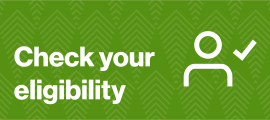Introduction
The Veterans’ Support Act 2014 placed rehabilitation at the centre of veterans’ entitlements for the first time. In 2018, we released the Veteran Rehabilitation Strategy. This was a new approach to making modern, targeted, and high-quality rehabilitation available to those who have been injured or made ill because of their service to New Zealand. It showed that we were determined to develop and expand our rehabilitation services and maximise outcomes for eligible veterans.
Read The Veteran Rehabilitation Strategy, 2018–2021 [PDF, 3.6 MB]
Key to this and the strategy was the rehabilitation work plan. This work plan successfully laid the foundations for our rehabilitation service delivery. Much has been achieved since then, and it is now time to refresh and confirm our objectives and actions through to 2026, when the strategy will be fully revised.
Read the Rehabilitation Programme Satisfaction Survey
Our 2024 refresh of the work plan aims to consider and incorporate evolving contexts within veteran services and the veterans’ community, feedback from previous rehabilitation clients, and recommendations from the analysis of outcomes delivered by the previous action plan.
In the 2024 work plan, we have identified new targets and opportunities. However, we also retained the themes and intent of the 2018 strategy.
This refresh aims to refocus objectives and goals and update the actions to ensure that the strategy continues to be aspirational, enduring, achievable with available resources, and measurable within existing capabilities.
The 2024 work plan will provide guidance for the development of our rehabilitation services for 2024–2026. Our intention is for this plan to be a living document and continue to evolve alongside the initial 2018 Rehabilitation Strategy.
Workplan for 2024 to 2026
{{ controlText }}
Delivery of an integrated, effective, evidence-based rehabilitation service to veterans, which is both consistent with their needs, and is sensitive and responsive to their social and cultural contexts.
Key themes:
- Veteran centric.
- Integrated support.
- Trusted support.
- Collaborative support.
| Actions |
Measurement actions |
Evidence of success |
- Identify Hauora Māori champions within Veterans’ Affairs rehabilitation and case management teams.
- Scope the establishment of a Hauora Māori rehabilitation working group engaging Veterans’ Affairs, NZDF resources and key providers.
- Scope the establishment of a Veterans’ Affairs key provider network to ensure dialogue between community providers and Veterans’ Affairs.
- Increase engagement with individual providers, clients, and their whanau through increased use of case conferences and collective decision making.
- Explore mechanisms within existing and evolving rehabilitation models to increase engagement with, and involvement of, families and whānau in veteran rehabilitation.
- In consultation with Māori veterans further integration of Hauora Māori into the revised Veterans’ Affairs rehabilitation strategy.
- Review existing treatment and rehabilitation policies to ensure access to culturally appropriate modalities of care, such as Rongoā.
- Integration of Rehabilitation Strategy with the aims and outcomes of Te Arataki.
|
- Evidence of meeting records and associated outcomes.
- Provider reporting.
- Client surveys.
- Staff surveys.
- Review of rehabilitation outcomes.
|
- Improved outcomes in both provider and client feedback surveys.
- Increasing transition to work in vocationally ready weekly compensation clients.
- Publication of the updated Veterans’ Affairs Rehabilitation Strategy.
|
Effective communication with veterans and the veterans’ community regarding rehabilitation services and service delivery.
Key themes:
- Veteran-centric trusted support.
- Collaborative support.
| Actions |
Measurement actions |
Evidence of success
|
- Implement integrated rehabilitation communication framework within Veterans’ Affairs, including improved application documentation, client segmentation, and minimum contact KPIs.
- Explore and implement opportunities within Veterans’ Affairs communication channels to increase the visibility of rehabilitation within the veteran community.
- Establish ongoing relationship between Veterans’ Affairs rehabilitation services and key veteran advocacy and support groups.
- Explore opportunities to work with established and emerging community health providers to find and realise synergies in the delivery of rehabilitation services to veterans within their communities.
|
- Provider reporting.
- Client feedback survey.
- Audit of client segmentation process.
- Audit of compliance with minimum contact KPIs.
|
- Improved outcomes in both provider and client feedback surveys.
- Evidence of adequate performance in audit measures.
|
Effective and timely transition of eligible service people from the NZDF to Veterans’ Affairs rehabilitation services.
Key themes:
- Integrated support.
- Collaborative support.
| Actions |
Measurement actions |
Evidence of success |
- Continue current work with NZDF to develop direct opt-out referral processes for eligible veterans upon release from the NZDF.
- Explore the opportunities to contribute to the development of pathways for veterans to ensure that they effectively transition from NZDF to Veterans’ Affairs rehabilitation support.
- Scope the establishment of effective and ongoing relationships between NZDF transition coaches and Veterans’ Affairs through the key provider network to allow for effective communication and service improvement.
- Continue current work with the NZDF to increase the knowledge and understanding of Veterans’ Affairs rehabilitation services within NZDF health and NZDF command at all levels through direct outreach and engagement at unit, formation, and service level.
|
- Measure of eligible veterans transitioning from service, registering and receiving rehabilitation services through Veterans’ Affairs (will require baseline measure in year one).
- Feedback from NZDF Transition coaches.
- Possible surveys of service person knowledge of Veterans’ Affairs rehabilitations services.
|
- Increasing proportion of eligible veterans registering and/or receiving rehabilitations services through Veterans’ Affairs.
- Increasing knowledge of Veterans’ Affairs’ rehabilitations services evidenced in feedback.
|
